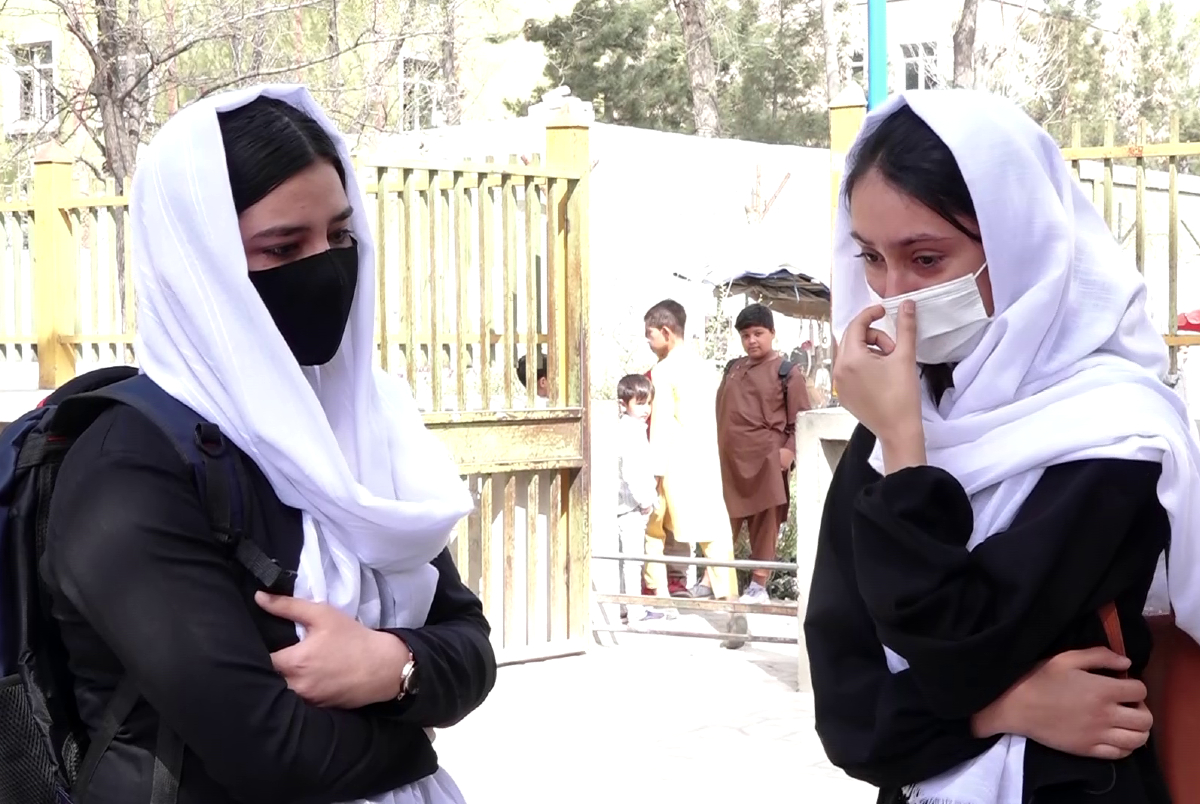A report from 2021 estimated that 97% of Afghans could be living in poverty by the middle of this year.
Qatar has declared its support to initiatives aimed at enhancing the participation of Afghan women in the peacemaking and peace-building process in the war-torn country, where months of Taliban rule has left women trailing behind.
In a statement at a Human Rights Council session, during the Enhanced Interactive Dialogue on Human Rights of Women and Girls in Afghanistan, Deputy Permanent Representative of Qatar in Geneva Juhara Abdulaziz Al Suwaidi echoed Qatar’s aspirations in ensuring the right of women to education and equal employment opportunities, according to Qatar News Agency.
Doha has assisted in the evacuation of numerous Afghan women who have felt threatened, Al Suwaidi pointed out, detailing that members of the “Afghan Dreamers” team, a robotics team made up of girls between the ages of 15 and 19, are a testament to the Gulf country’s stance on the issue.
Qatar swiftly moved to safely evacuate the girls from Afghanistan days after the Taliban took over Kabul, providing them with accommodation at Education City and awarding them scholarships from Qatar Foundation (QF) and Qatar Fund for Development to pursue their education at QF universities.
Al Suwaidi emphasised that Qatar has frequently urged the interim Afghan government to establish a more inclusive government that represents all members of society while reiterating the significance of respecting Afghan women’s rights and promoting their contribution to the country’s development.
Doha has also raised concerns about the impact of certain policies on human rights and national development in Afghanistan, where secondary education for girls has been suspended.
Afghan girls and education
The Taliban had promised what was seen as a more moderate rule when they militarily seized power on 15 August last year.
Speaking to Doha News at the time, Taliban spokesman Suhail Shaheen said that girls were allowed to go to school as long as they worse the headscarf.
Seven months following the takeover, high school female students, between seventh and 12th grade, were turned away from their schools per the ministry of education’s order.
Al Suwaidi’s comments came as a delegation of Afghan women speaking at the UN on Monday urged on the international community to address what was described as “gender apartheid” in Afghanistan since the Taliban takeover.
“Today, human rights in Afghanistan do not exist,” Mahbouba Seraj told the United Nations Human Rights Council in Geneva.
Since the Taliban takeover a year ago, Qatar has repeatedly urged the interim Afghan government to ensure the protection of the rights of women and girls.
Speaking to the Newsweek in February, Qatar’s Foreign Minister Sheikh Mohammed bin Abdulrahman Al Thani said that his country repeatedly pressed the Taliban to ensure women and girls achieve their rights.
“We have seen some small steps, which are not that much significant, but we keep pushing the Taliban to do more and to make sure women are allowed to go back to their workplace and practice their lives normally,” he said.
Afghan and United States officials held a two-day meeting in Doha late June, the first in-person talks between the two sides in more than three months.
During the meeting in the Qatari capital, US representatives, according to the State Department, urged the Taliban officials to address women’s rights, a key sticking point which led to the US pulling out of dialogue in Doha in March, when the group made the abrupt decision to ban all teenage Afghan girls from continuing secondary school education.
“The United States supports the Afghan people’s demands that girls be allowed to return to school and that women be allowed to work, contribute to the country’s economic growth, and move and express themselves freely,” the statement said.
US special envoy for Afghan women, Rina Amiri, abstained from attending the high-delegation meeting led by Special Representative for Afghanistan Thomas West and Taliban Foreign Minister Amir Khan Muttaqi in Doha.
Voicing her concerns, Amiri tweeted at the time of the meeting: “I’m gravely concerned by the Taliban’s actions and current stance on the areas my office oversees and disappointed that robust international engagement to this point hasn’t produced meaningful outcomes for Afghan women, girls and at-risk populations.”







